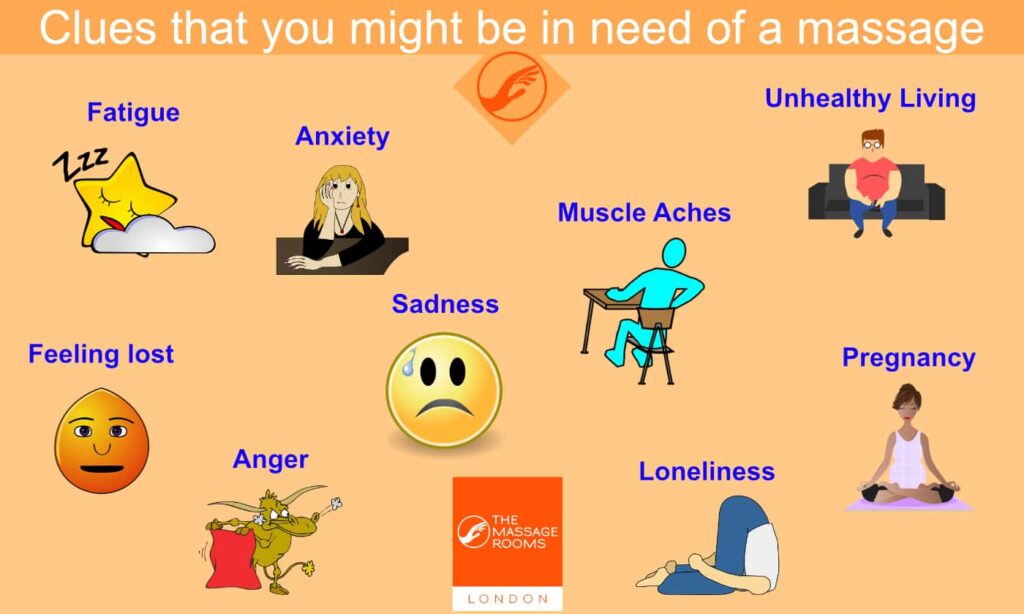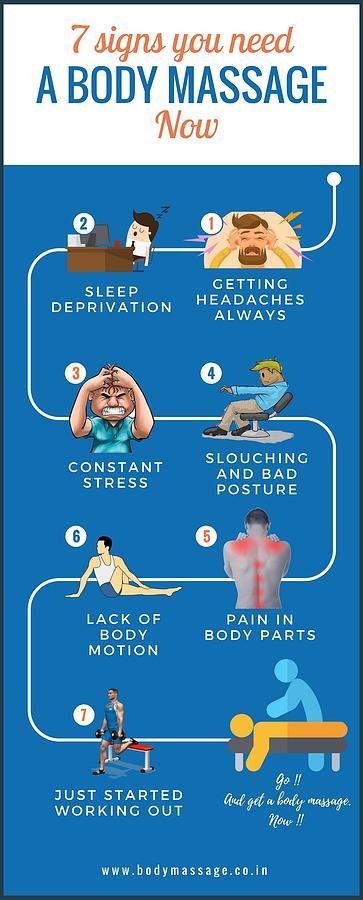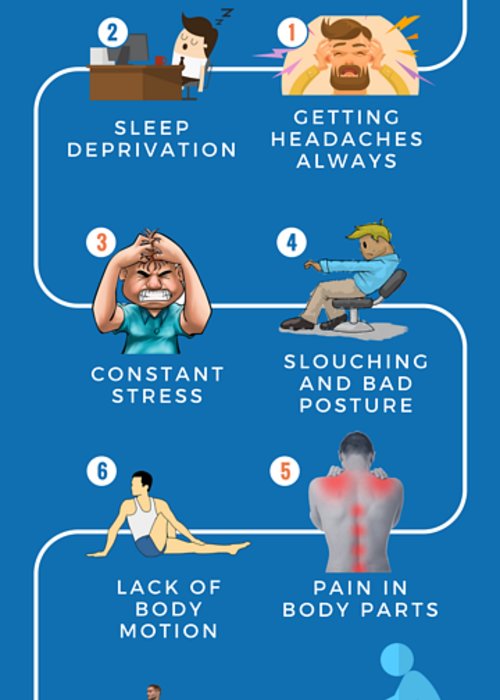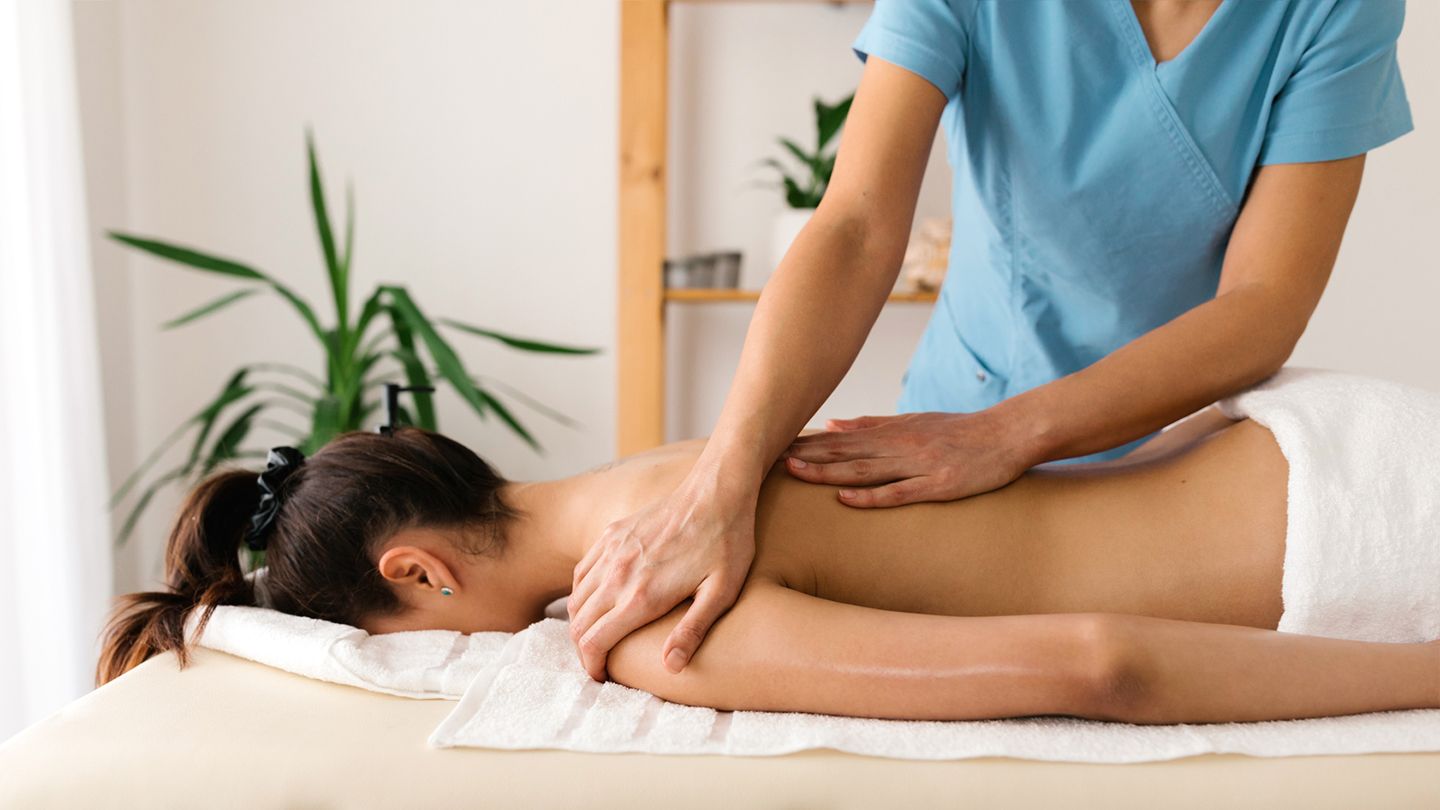Welcome to our blog, where we love talking all things massage! We’re a group of massage therapists and enthusiasts who are here to share our insights and help fellow massage lovers. Today, we want to talk about an important question: How do you know when your body needs a massage?
In our latest article, we’ll dive deep into the signs and signals that your body sends when it’s in need of some therapeutic touch. From aching muscles to stress-related tension, we’ll explore the various ways your body communicates its need for a massage. So, if you’ve been wondering whether it’s time to book your next session or give yourself a self-care treat, stay tuned to learn more in our upcoming article. We’ve got you covered!
Signs of Muscle Tension
Muscle tension is a common issue that many people face on a daily basis. Whether it is due to stress, poor posture, or physical activity, muscle tension can lead to discomfort and pain. So, how do you know when your body needs a massage to help relieve muscle tension? Here are some signs to look out for:
Persistent pain or discomfort
One of the most obvious signs that your body needs a massage is persistent pain or discomfort in specific areas of your body. If you constantly feel tightness or soreness in your muscles, especially after physical activities or long periods of sitting, it may be a sign that your muscles are in need of some relaxation.
Tight or stiff muscles
Another sign of muscle tension is tight or stiff muscles. You may notice that it is more difficult to move certain parts of your body, or you may feel a constant tension in specific muscle groups. This is often caused by muscle imbalances or overuse, and a massage can help to release the tension and restore balance to your muscles.
Physical and Mental Stress Symptoms
Stress is a common factor that contributes to muscle tension. When you are under physical or mental stress, your body releases stress hormones that can cause your muscles to tighten up. Here are some signs that your body is under stress and could benefit from a massage:
Fatigue and low energy levels
If you constantly feel tired, fatigued, or lack energy, it may be a sign that your body is experiencing high levels of stress. A massage can help to reduce stress hormones in your body and promote relaxation and rejuvenation.
Difficulty sleeping
Stress and muscle tension can also interfere with your sleep patterns. If you find it difficult to fall asleep or stay asleep at night, it may be a sign that your body is in need of some relaxation. A massage can help to calm your nervous system and promote a better night’s sleep.

This image is property of www.themassagerooms.com.
Reduced Range of Motion
Muscle tension can also lead to a reduced range of motion, making it difficult to perform certain movements or activities. Here are some signs that your muscles may be tight and in need of a massage:
Limited flexibility
If you notice that it is more difficult to stretch or perform certain movements, it may be a sign that your muscles have become tight and inflexible. A massage can help to loosen up the muscles and improve your flexibility.
Difficulty performing daily activities
Muscle tension can also make it difficult to perform everyday activities such as lifting, bending, or reaching. If you find it challenging to complete these tasks without discomfort or pain, it may be time to consider a massage to relieve muscle tension.
Headaches and Migraines
Headaches and migraines can be caused by a variety of factors, and muscle tension is one of them. If you frequently experience headaches or migraines, especially ones that are accompanied by intense pain in the head or neck, it may be a sign that your body needs a massage to release muscle tension and alleviate your symptoms.
Frequent headaches
If you find yourself dealing with headaches on a regular basis, it may be worth considering a massage to help relieve muscle tension and reduce the frequency and intensity of your headaches.
Intense pain in the head
If your headaches are accompanied by intense pain in your head or neck, it may be a sign that muscle tension is contributing to your symptoms. A massage can target those tense muscles and provide relief from the pain.

This image is property of images.fineartamerica.com.
Muscle Imbalances
Muscle imbalances occur when certain muscles in your body are overactive or underactive, leading to a lack of balance and stability. Here are some signs that you may have muscle imbalances that could benefit from a massage:
Muscle weakness
If you notice that certain muscles in your body feel weak or that you struggle to activate them properly, it may be a sign of muscle imbalances. A massage can help to release tension in overactive muscles and activate underactive muscles, restoring balance and strength to your body.
Muscle tightness
On the other hand, if you constantly feel tightness or tension in specific muscle groups, it may be a sign that those muscles are overactive and in need of some relaxation. A massage can help to release the tension and promote flexibility and balance in your muscles.
Chronic Conditions and Injuries
Muscle tension can also contribute to chronic conditions and injuries. If you have a recurring pain or have experienced strains and sprains in the past, a massage can help to alleviate the symptoms and prevent future injuries. Here are some signs that your body may benefit from a massage:
Recurring pain
If you constantly experience pain in certain areas of your body, it may be a sign that your muscles are tense and contributing to the pain. A massage can help to relax the muscles and reduce pain and discomfort.
Strains and sprains
If you have experienced strains or sprains in the past, whether from sports activities or accidents, it is important to address any muscle tension that may be contributing to your injuries. A massage can help to release tension in the muscles surrounding the affected area and promote healing and recovery.

This image is property of f9s8b8s3.rocketcdn.me.
Poor Posture
Poor posture is a common issue in today’s society, with many people spending hours each day sitting in front of a computer or hunching over their smartphones. Poor posture can lead to muscle imbalances and tension, resulting in discomfort and pain. Here are some signs that your body may be in need of a massage to address poor posture:
Hunched shoulders
If you find yourself constantly hunching your shoulders forward or if your shoulders appear rounded, it may be a sign that your posture is suffering. A massage can help to relax the muscles in your chest and neck, allowing your shoulders to naturally fall into a more aligned and upright position.
Lower back pain
Poor posture can also contribute to lower back pain. If you frequently experience discomfort or pain in your lower back, it may be a sign that your posture needs improvement. A massage can help to relieve muscle tension in your lower back and promote proper alignment and posture.
Emotional and Mental Well-being
Massage is not only beneficial for your physical well-being but also for your emotional and mental well-being. Here are some signs that your body may need a massage to help improve your overall mental health:
Feeling overwhelmed
If you often feel overwhelmed or stressed out, it may be a sign that your body needs a break. Massage can help to reduce stress hormones in your body and promote relaxation and a sense of calm.
Increased anxiety
Anxiety can manifest in various ways, including physical symptoms such as muscle tension. If you find that your anxiety levels have increased and are causing muscle tension, a massage can help to alleviate the symptoms and promote relaxation.

This image is property of harmonyhealthmassage.com.
Recovery from Physical Activity
Physical activity, while beneficial for your overall health, can also lead to muscle tension and soreness. Here are some signs that your body may need a massage to aid in recovery:
Muscle soreness
If you regularly engage in physical activities such as exercise or sports, you may experience muscle soreness afterward. A massage can help to speed up the recovery process by increasing blood flow to the muscles and reducing muscle tension and soreness.
Improved muscle recovery
Whether you are an athlete or simply enjoy staying active, a massage can help to improve your overall muscle recovery. By promoting circulation and releasing muscle tension, a massage can help your muscles recover faster and better prepare you for your next workout.
Conclusion
Your body is constantly sending you signals when it is in need of some self-care, and muscle tension is one sign that should not be ignored. If you experience persistent pain or discomfort, tight or stiff muscles, reduced range of motion, headaches or migraines, muscle imbalances, chronic conditions and injuries, poor posture, emotional and mental well-being issues, or you simply want to aid in your body’s recovery from physical activity, a massage may be just what you need. Listen to your body, and when it speaks, treat it with the care it deserves. Schedule a massage today and experience the countless benefits it can provide for your overall well-being. Your body will thank you.

This image is property of render.fineartamerica.com.
